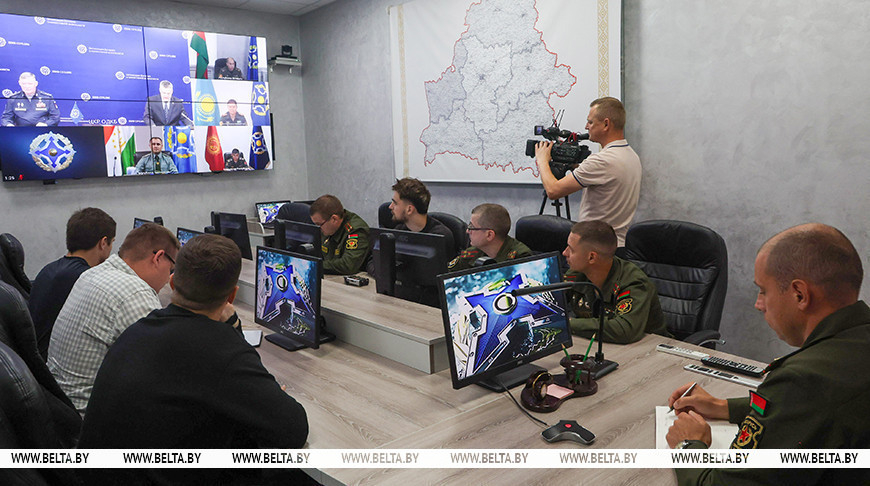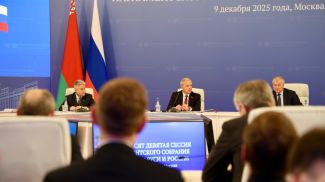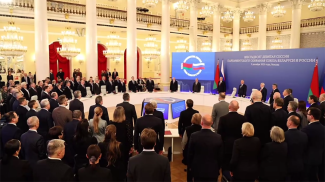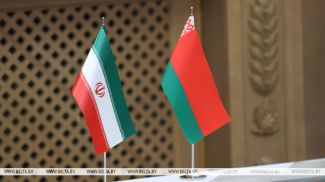
MINSK, 21 August (BelTA) – The concepts of the military exercises of the Collective Security Treaty Organization (CSTO) that will take place in Belarus are tightly connected to the concept of the Belarusian-Russian strategic military exercise Zapad 2025 [West], BelTA learned from Chief of the CSTO Joint Staff Andrei Serdyukov.
The main event of operational and combat training of the Collective Security Treaty Organization will be the exercise Vzaimodeistviye 2025 [Interaction] with the CSTO’s Collective Rapid Response Forces in the military training areas Losvido and Lepelsky in Belarus’ territory in early September. For the sake of enabling this exercise the special exercise Poisk 2025 [Search] will be organized with reconnaissance forces and assets in addition to the Eshelon 2025 [Echelon] exercise with logistic forces and assets of the Collective Rapid Response Forces.
“As a peculiarity of these exercises their concepts are tightly related to the concept of the joint strategic exercise of the Armed Forces of the Republic of Belarus and of the Russian Federation Zapad 2025,” Andrei Serdyukov said. He stressed that the main task of the Collective Rapid Response Forces is to ensure the deployment of the regional military force.
In addition to military exercises in Belarus’ territory the command and staff exercise Rubezh 2025 [Border] with units of the Collective Rapid Response Forces of the Central Asia region will take place in Kyrgyzstan in mid-September. In mid-October Tajikistan will host a joint exercise with the CSTO’s peacekeeping forces Indestructible Brotherhood 2025 and a special exercise with the joint radiation, chemical, and biological protection and medical support unit Barrier 2025. Active phases of these exercises will be combined with the final stage of the CIS counterterrorism exercise Commonwealth Antiterror 2025.
“All the exercises will include research into topical matters of making the application of the collective forces more efficient. Relevant specialists from primary education and scientific research organizations of the CSTO countries will be involved,” Chief of the CSTO Joint Staff Andrei Serdyukov noted.













